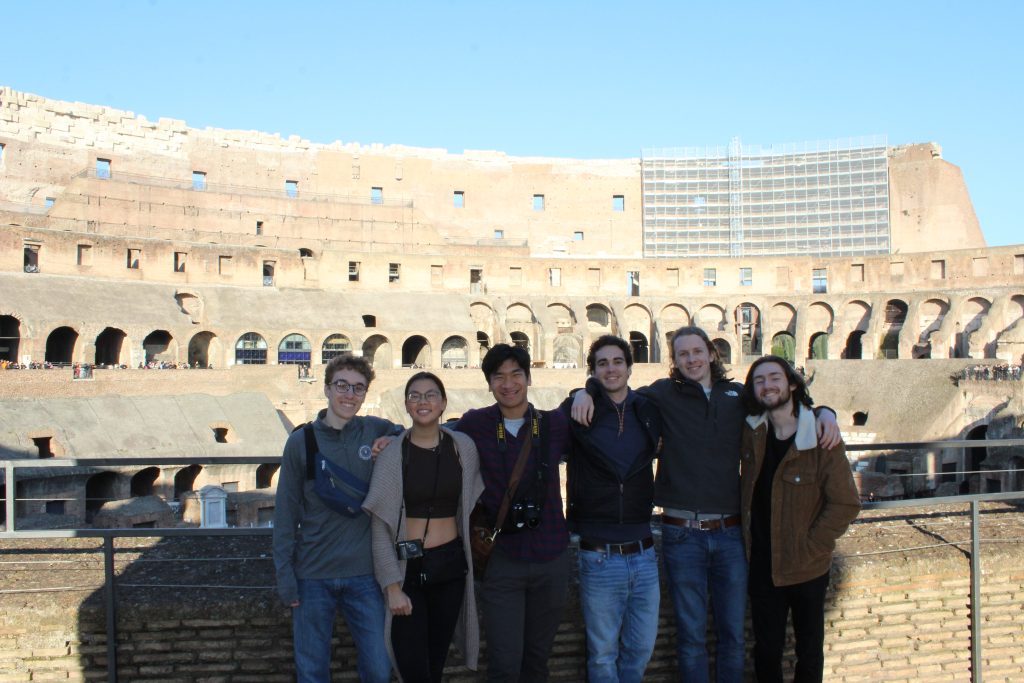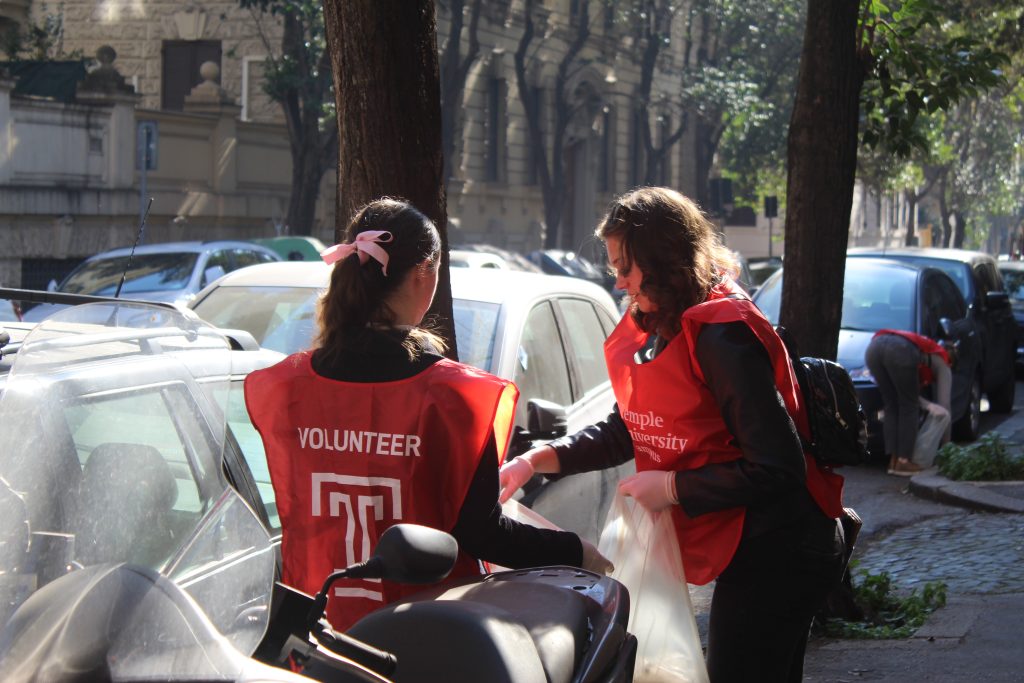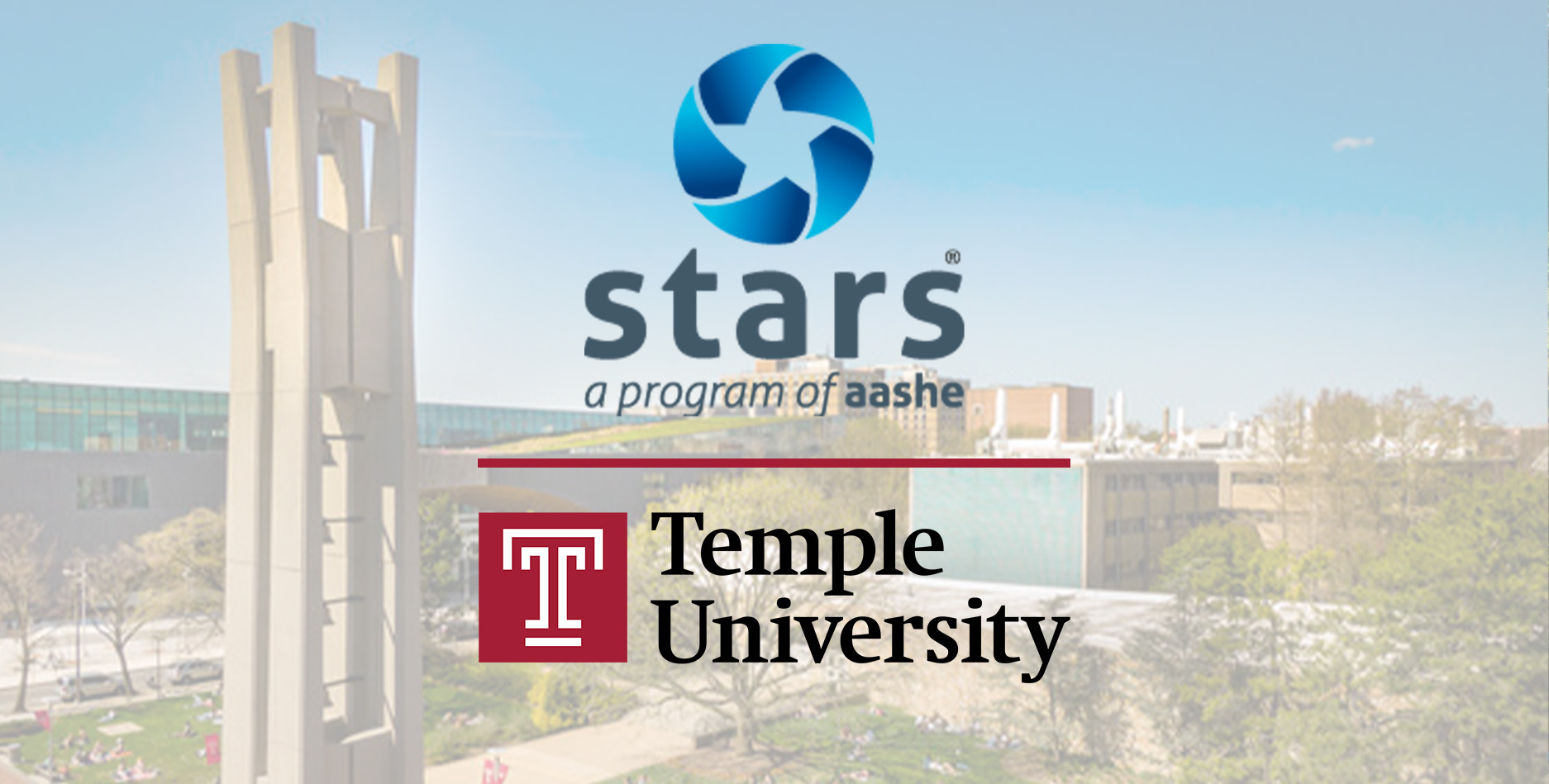This year, Temple University elevated its STARS ranking (Sustainability Tracking Assessment and Rating System) from silver to gold. The STARS ranking recognizes accomplishments in campus sustainability from sustainable construction to environmental education.
An important part of Temple’s jump from silver to gold is the recent signing of the CANIE Accord (Climate Action Network for International Educators) by the university’s Education Abroad and Overseas Campus Office in January 2024. CANIE is an international organization striving for a carbon-neutral and climate-literate international education sector by 2030.
In signing the accord, institutions are asked to declare their commitments to a variety of climate actions, choosing as many commitments from the list as possible. Education Abroad has agreed to 31 of the commitments across the five key areas: leadership and influencing; emissions accounting and reduction; travel; facilities, operations, and procurement; and climate education.

“Signing CANIE came at a pivotal moment when Temple was resubmitting to STARS. This public commitment helped Temple achieve its first-ever gold ranking,” said Rebecca Collins, Director of Temple’s Office of Sustainability.
“The CANIE Accord commitments support Temple’s climate commitments and help guide the university’s objectives by targeting and spurring initiatives connected to international education,” she added.
Such initiatives include Education Abroad’s work to reduce the carbon footprint of students studying abroad and to inspire and fund students to engage in sustainable action while overseas, part of its Temple Global Green initiative.
Education Abroad’s Global Green Grants encourage study abroad students to develop their own sustainability projects at Temple Rome or Temple Japan. For example, the Spring 2024 Global Green Grant recipient for Temple Rome, student Ezekiel Cartwright (STHM ’25), worked to keep used sporting goods and athletic clothing out of landfills by donating them to suitable non-profit organizations.
“The goal of Global Green Grants is for students to complete a project overseas which connects with their own academic and professional goals, and which positively contributes to issues of sustainability that are specific to that location,” said Sarah Short Hutyra, assistant director for Institutional Relations in Temple’s Education Abroad Office, who serves as the mentor to the grant recipients.
Another Education Abroad and Overseas Campuses initiative called Stay Local Abroad Weekend, created in partnership with Penn State and Temple Rome, aims to reduce carbon emissions tied with travel by incentivizing and promoting local activities during one specific weekend each semester. While abroad, students often travel to neighboring countries, contributing to increased carbon emissions. By encouraging students to stay within their host city, students not only decrease their carbon footprint, but also learn about local sustainability issues and get to know their chosen destination better.
Now hosted each fall and spring semester at Temple Rome, students participate in Italian cultural labs, wine tastings, recycled art or papermaking workshops, a walking/running tour of the city, sustainable food tours, a campus clean-up, and more.

“The Temple Rome faculty have been enthusiastic about proposing and leading activities, and they love to introduce students to their favorite local places,” said Suzanne Willever, Associate Director for Academics and Outreach, Education Abroad.
“Both the Stay Local Abroad weekends and the Global Green Grants are supported by the Office of Sustainability, and we are extremely grateful for their ongoing partnership in Temple Global Green,” Willever added.
Summing it all up, Collins said, “Education Abroad, and the Office of Global Engagement more broadly, have been proactive, thoughtful, and dedicated partners, finding ways to enhance the student experience and bring us closer to a more just and equitable climate future.”
By Massin Larbi, CLA ’25, Global Engagement writing intern

